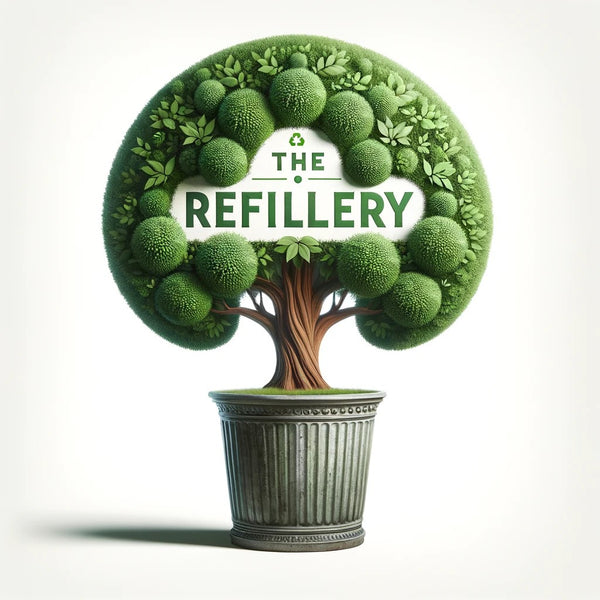Home Composting Guide: Turn Kitchen Scraps into Garden Gold
Home Composting Guide: Turn Kitchen Scraps into Garden Gold
Composting is one of the easiest ways to reduce household waste while creating nutrient-rich soil for your garden. This guide will help you start composting kitchen scraps at home, even if you're a complete beginner!
Why Compost?
Food waste makes up about 30% of household garbage in Canada. When organic waste goes to landfills, it produces methane, a greenhouse gas 25 times more potent than carbon dioxide. Composting at home:
- Reduces your household waste by up to 30%
- Creates free, nutrient-rich soil amendment
- Reduces greenhouse gas emissions
- Saves money on garbage bags and fertilizer
- Helps your garden plants thrive naturally
What Can You Compost?
✅ Green Materials (Nitrogen-rich)
- Fruit and vegetable scraps
- Coffee grounds and filters
- Tea bags (remove staples)
- Fresh grass clippings
- Fresh plant trimmings
- Eggshells (crushed)
✅ Brown Materials (Carbon-rich)
- Dry leaves
- Shredded newspaper and cardboard
- Paper towels and napkins
- Sawdust and wood chips
- Straw and hay
- Dryer lint (from natural fibers only)
❌ Never Compost
- Meat, fish, or poultry
- Dairy products
- Oils, fats, or grease
- Pet waste
- Diseased plants
- Weeds with seeds
- Glossy or coated paper
- Treated wood
Composting Methods for Every Space
Backyard Composting
Best for: Houses with yards
What you need: Compost bin or designated area, mix of green and brown materials
How it works: Layer green and brown materials in a 1:3 ratio, turn regularly, keep moist but not soggy. Ready in 3-12 months.
Tumbler Composting
Best for: Faster results, easier turning
What you need: Compost tumbler
How it works: Add materials to tumbler, rotate every few days. Ready in 6-8 weeks with proper management.
Vermicomposting (Worm Composting)
Best for: Apartments, small spaces, year-round composting
What you need: Worm bin, red wiggler worms, bedding material
How it works: Worms eat kitchen scraps and produce nutrient-rich castings. Ready in 3-6 months.
Getting Started: Step-by-Step
Step 1: Choose Your Method
Consider your space, time commitment, and what materials you have available.
Step 2: Set Up Your System
Place your compost bin in a partially shaded area with good drainage. If using a tumbler or indoor system, choose a convenient location.
Step 3: Start Collecting Materials
Keep a small container in your kitchen for scraps. Empty it into your compost system every few days.
Step 4: Layer and Mix
Alternate green and brown materials. Aim for 1 part green to 3 parts brown materials by volume.
Step 5: Maintain Your Compost
Turn regularly, keep moist, and monitor temperature if using hot composting methods.
Troubleshooting Common Issues
Problem: Bad Smell
Cause: Too much green material or too wet
Solution: Add Bin Breeze or brown materials, turn more frequently, ensure proper drainage
Problem: Not Breaking Down
Cause: Too much brown material or too dry
Solution: Add green materials, water lightly, turn to aerate
Problem: Pests
Cause: Wrong materials or exposed food scraps
Solution: Avoid meat/dairy, bury scraps under brown materials, use a bin with a lid
Problem: Too Slow
Cause: Pieces too large, not enough turning, wrong ratio
Solution: Chop materials smaller, turn more often, adjust green/brown ratio
Winter Composting in Canada
Don't let cold weather stop you! Here are tips for winter composting:
- Insulate your bin with straw or leaves
- Continue adding materials - decomposition slows but doesn't stop
- Consider indoor vermicomposting or bokashi
- Stockpile brown materials in fall for winter use
- Keep a larger kitchen scrap container to reduce trips outside
Using Your Finished Compost
Your compost is ready when it's dark, crumbly, and earthy-smelling. Use it to:
- Mix into garden soil before planting
- Top-dress around existing plants
- Create potting mix for containers
- Improve lawn soil
- Mulch around trees and shrubs
Quick Tips for Success
- Start small - even a simple pile works
- Keep it simple - composting happens naturally
- Be patient - good compost takes time
- Keep learning - every compost system is unique
- Don't give up - troubleshoot and adjust as needed
Composting Supplies Available
Looking for composting supplies? Visit The Refillery Cochrane for:
- Compost bins
- Charcoal filters
- Bin Breeze Indoor Compost Powder, which eliminates fruit flies, neutralizes odour and soaks up moisture.
Ready to start your composting journey? Remember, every small step toward reducing waste makes a difference. Start with what you have, learn as you go, and enjoy watching your kitchen scraps transform into garden gold!
For more sustainable living tips and eco-friendly products, visit The Refillery Cochrane - your local source for zero-waste solutions!
